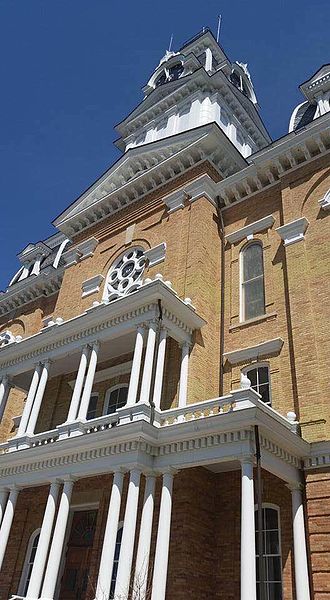
It is worse than it was, but not bad yet.
That seemed to be administrators’ conclusion regarding recent changes made by the Higher Learning Commission to its accreditation process. In response to Department of Education mandates and in a culture of standardized tests and quantifiable results, the HLC has abandoned self-studies — essentially books written by schools describing their institutions submitted every ten years before a review visit — for a combination of processes the HLC calls “Open Pathway.”
“The self-study as we have known it is finished,” Provost David Whalen said. “What they did is they replaced the accreditation process with a couple of accreditation processes having different degrees of frequency and intrusiveness.”
In principle, Open Pathway is still a 10-year process. Within that decade, institutions must propose two “Quality Initiatives,” which much be approved by the HLC, executed, and then assessed. There are also self-reporting elements in years four and seven.
Schools still submit a kind of self-study, but what once was a composed book has become an online series of “Assurance Arguments” supporting “Core Components” and “Sub-Components” to demonstrate fulfillment of five “Criteria for Accreditation” the HLC has set forth.
“It used to be the sort of thing that one office could keep an eye on,” Assistant to the Provost Mark Maier said. “Once a decade, it would involve the rest of campus, and then no one else would have to think about it for another eight years. Now it involves a lot more people and the reporting is more regular.”
Hillsdale’s reaccreditation is set for the 2017-2018 academic year. Some 20 committees are producing topic reports with the HLC criteria and components in mind. Those topic reports will be assembled and delivered to criteria authors, who will take all the reports and distill them into Assurance Arguments.
Once data has been entered and President Larry Arnn has signed off, the college will upload its complete report. A committee of peers from other HLC institutions will evaluate the report, and visit campus early in 2018 to review and spot check.
“The Higher Learning Commission is attempting to make things less burdensome than writing a book,” Whalen said. “In fact, for a smaller institution like us, it’s probably about the same, maybe even a little more.”
Whalen said the emphasis has shifted to metrics based on facts and data.
“It’s not the case that most of this type of reporting isn’t being done already internally,” Maier said. “But it just adds a little bit more pressure on the institution according to these strict deadlines that are imposed on us.”
The college is overhauling its General Education Assessment process — a move which administrators already intended but which also fulfills specifications as a Quality Initiative in the reaccreditation process.
Assistant Professor of Psychology Colin Barnes is on the committee overseeing that initiative and has, along with Maier, gone to meetings with the HLC over the last few years. He said he thinks the Higher Learning Commission’s changes are motivated by federal interference and a growing obsession among educators with things being measured and a proof of improvement and change.
“There were several of the higher ups in the Higher Learning Commission who made presentations, and there were certain things that they said, tone of voice, gesticulations, and so forth that conveyed to me that these were requirements because they were getting pressure from the outside,” Barnes said.
The HLC was clear with Maier about some of the Education Department’s roles in changes.
“They said the federal compliance piece is just going to continue to grow year in and year out,” Maier said. “It’s largely motivated by the Department of Education wanting to make sure these institutions of higher learning are being good stewards of federal money and are more or less providing what they say they are providing to the students. Obviously, we don’t use the money, but we’re kind of lumped in with everyone else.”
Although the Education Department doesn’t seem to be using accrediting agencies to target independent institutions, Whalen said it has turned accrediting agencies into federal enforcers and disconnected some federal regulations from the reception of federal funds.
“Because the accreditation agencies have been made the gatekeepers for federal funding, the Department of Education can and does dictate matters of policy to them,” Whalen said. “So there are things that we are having to do now to maintain our accreditation that even our accreditation governing body does not find all that serious or valuable but are imposed by the Department of Education.”
Whalen said the HLC opposes such regulations and sees it as a misuse and misunderstanding of accreditation by the Education Department. Maier pointed out that the college has a good relationship with the HLC going back to 1915.
“In some respects, we are kind of a typical small, liberal arts college to them,” Maier said. “I don’t think they’re approaching us with a target. That could change, but I don’t think there’s a war coming.”
Whalen said the changes have introduced a layer of complexity which the college has not had hitherto; where this will lead in the future is unknown for now. As of yet, no substantial changes have been made at Hillsdale.
“We’ve always run a tight ship, but now we need to not only run a tight ship but prove we have run a tight ship,” Whalen said.

